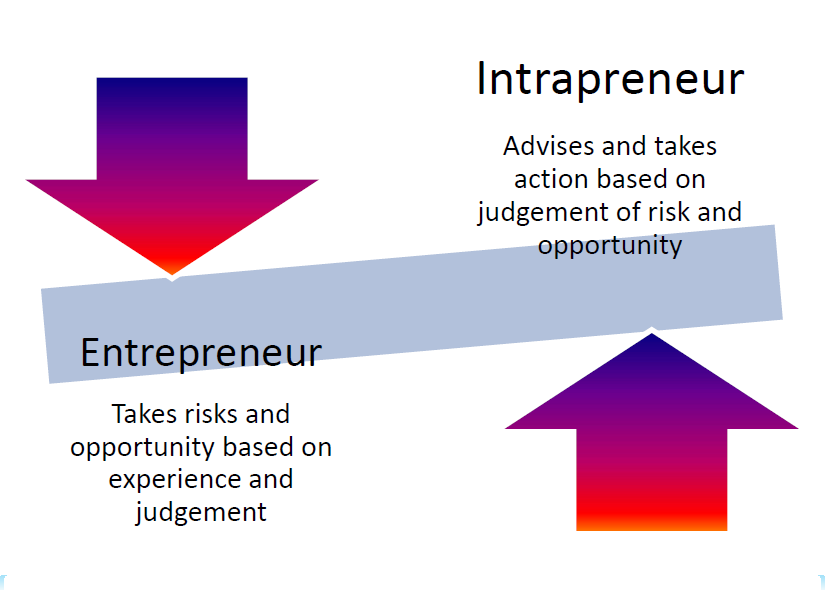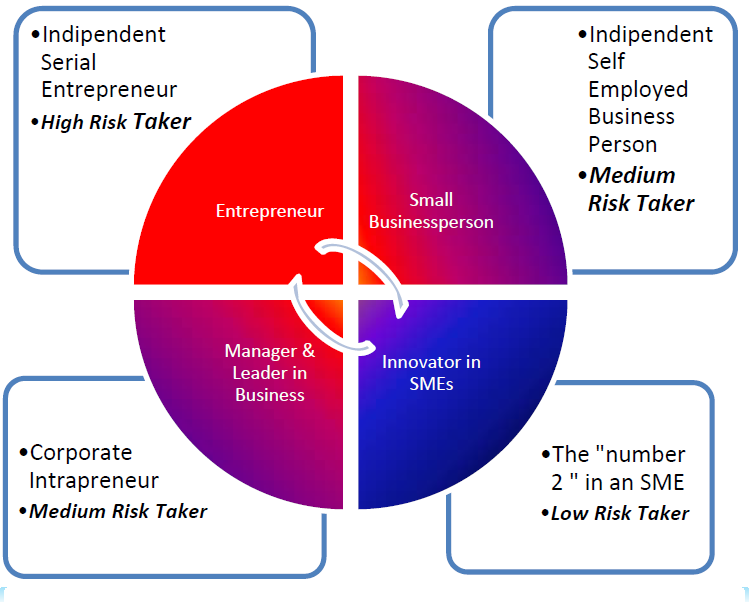Introduction
Students who choose the Entrepreneurial Business Administration pathway of the BBA degree, and the specialisation in Entrepreneurship & FinTech are often interested in starting their own companies at the end of their studies, especially in the field of digitalisation, marketing & sales. It is a challenging programme and fully packed with business and entrepreneurship projects.
The specialisation modules have a focus on FinTech and include subjects such as 'Introduction to Financial Technology' and 'Introduction to Big Data'. In the Final Year students complete the core of their entrepreneurial bachelor with strategic subjects: 'E-Payments & Crypto-currency' & 'Financial Technology Risk Management'.
FinTech specialisation students in the EBA will complete their work experience, business start-ups and graduation assignment in the world of entrepreneurial financial technology solutions and business!
The Entrepreneurship programme is for students who know that they would like to start and run their own businesses, and who want the support and tools that a Bachelor programme in Entrepreneurship and SME Management can give them. Students will be required to have an international outlook, and speak good English. Students will have ambition, optimism and good general communication skills. They will be imaginative, artistic, conceptual thinkers and have good social networks.
The EBA pathway enables future entrepreneurs to more readily adapt to the changing environment, through the use of their learned skills, competencies and knowledge, thus also maximising the avoidance of company failure. In cases where companies do fail, trained entrepreneurs will be more capable of ensuring continuation than those who are not specifically educated in the field of entrepreneurship.
Course Content
These programmes will prepare students to understand much deeper the concept of entrepreneurship and allow them to gain knowledge, skills and attitudes of a real entrepreneur, so that they can immediately start their own businesses during their final year of EBA study. A real entrepreneur will then be born.
Modules include Opportunity and Lead Creation, Entrepreneurial Behaviour, Business Start-ups and Business Plans, Bootstrapping & Raising Finance, Sales Pipeline Management.
Students who choose the FinTech specialisation will follow 6 modules focussed on the aspects of FinTech in small to medium sized businesses, combined with business plans, marketing plans, work experience and graduation assignments that focus on the world of FinTech in the digital age, and the use of big-data run online platforms and financial technology solutions. For full details please see the curriculum overview on the Downloads Pages.
The Entrepreneurship Bachelor programme is divided into three distinct parts:
The Bachelor Programme Entrepreneurial Business Administration is aimed at highly motivated business students who are looking for a BBA that provides a combination of academic challenges and application within an intense international environment, in which they learn to start their own business.
Students understand that a broad BBA also provides them with a solid base from which to start their careers or further their academic studies, and is divided over 3 Phases. The EBA programme is structured within the module / block system which maintains a balance of core business subject modules, specialist subject modules and practical experience modules. Throughout the programming, Personal Development Plan, Tutoring and Foreign Languages represent the thread of skills and competency learning.
Phase 1 – (Theory)
Phase 1 is a general freshman year focusing on textbook theory required for all related management courses. Students study in mixed disciplined classes (all specialisations together), but are expected to show their chosen Specialisation field in their essays/papers/project work.
Phase 2 - (From Theory to Planning)
Phase 2, all disciplines, is a separate course of modules specifically related to the chosen field as well as more general modules. The focus of year 3 is planning and many modules will be examined through cases and planning, e.g. a Marketing Plan for the module Marketing. The year also includes the completion of a Business Plan and other specific Entrepreneurship Modules
Phase 3 - (Towards Strategy and Practice)
Phase 3 modules or the "Final year", in which students study the strategic modules of management, fulfil their special Work Preparation Module, as well as complete the year with their research assignment, the graduation dissertation. Students are also given the chance to test the robustness of their Business Plan in Business Start-ups and Business Plan Execution, as well as instigate a full business start-up in their Work Placement module.
The Industry

Professional Profile
An entrepreneur in business can fulfil two main functions; the driver of new business ventures itself (entrepreneur), or the driver of innovation and change within existing business (intrapreneur). The profile only essentially differs between these two roles in the requirements of the level of ability to take risk and aptitude for taking opportunity. Both the ability to judge risk and being aware of opportunity are competencies required at both ends of this profile’s spectrum.
An entrepreneur requires the ability to lead and motivate people. This will be during business start-ups and project launches, but also in times of change and innovation implementation. The entrepreneur will understand the need for good communication skills and have a good understanding of society, economics and sustainability. The entrepreneur will have skills of selling ideas and products, winning commitment, and presenting and executing business plans. Understanding the need for stable and solid management within a company, large or small is important. An entrepreneurial business person in modern-day Europe needs to be able to communicate with people across the continent and across the world, and requires the ability to understand the effects of national and international governments on the business ventures they are involved in. Entrepreneurs and intrapreneurs need the ability to look at problems and risks from a holistic view point and find solutions and manage risk through innovation. They need to have a good understanding of finance and fiscal matters and be able to knowledgeably communicate with people supporting them through accountancy, or human resource or information services, and be able to lead these people.
Entrepreneurs and intrapreneurs are successful because they can quickly understand complex situations that require them to plan and make strategic decisions, and work on a multitude of business ideas and projects at the same time. They have a solid understanding of marketing design and implementation. Being able to develop business ideas simultaneously requires an ability to determine and understand important details, pinpoint alternatives and continuously evaluate and review business processes. A characteristic of entrepreneurs is that they have the ability to fully devote and commit themselves to achieving their long-term business objectives and goals, and that this energy is also directly translated into the short-term objectives.
Career Prospects
 The profession - an Entrepreneur/Intrapreneur
The profession - an Entrepreneur/Intrapreneur
As described in the chart above, Wittenborg sees the possible professions of a graduate from the Bachelor of Business Administration in Entrepreneurship in four inter-related sections, between which there is often and natural overlap:
The (Serial) Entrepreneur
This is seen as someone who is committed to starting businesses and companies from scratch and making them a success.
The Independent Self-Employed Business Person
This is seen as a person who directs and manages a company, an SME. This could be the owner of a family driven business, or a business person who buys and takes over an existing business. This can also be an entrepreneur who has started a business through innovation and remains directing and managing that company, without selling or leaving to start a new venture.
The second in command in an SME
This extremely important entrepreneur is the most common non-executive entrepreneur in small business. An entrepreneur, as the number 2 in an SME, is a vital position as it enables the company to develop in an innovative and goal-orientated manner, with a careful balance of risks and opportunities. This kind of intrapreneur is someone who has had experience of business or project start-ups and project management, and has now reached the moment where the experience and knowledge gained can be used to support another entrepreneur.
The Corporate Intrapreneur
This entrepreneurial role is becoming increasingly important within companies and organisations, as well as non-profit and governmental organisations, as they are forced to change, develop and innovate in the modern economy and business environment. Corporations require entrepreneurial business leaders who, alongside their leadership qualities, have a broad range of business skills and competencies and business administration knowledge.
Entry Requirements
Entry Requirements - Bachelor Programmes
High School Diploma or final certificate, equivalent to the Netherlands HAVO or MBO level-4 diploma / UK AS & A-Level or BTEC. Please contact the Admissions Office to receive High School diploma comparisons. Advanced Placement / Credit Transfer Possible - please see Credit Transfer & Accreditation of Prior Learning at WUASfor more information.
English Language Requirements
IELTS 6 or TOEFL equivalent. Click here for an overview of the equivalent scores.
TOEFL Code of Wittenborg is 4889.
Not got the English level requirements? Find out about our Foundation Programme here.
Apply / Information Request
Fill in the Information Request Form to get more information about our programmes and admissions process. You can also send an email to admission@wittenborg.eu, and one of our team members will reply to you as soon as possible.
Please note that our office is open Monday to Friday from 08:30 to 17:00 Dutch time.
If you wish to directly start your application, please start your application here.
